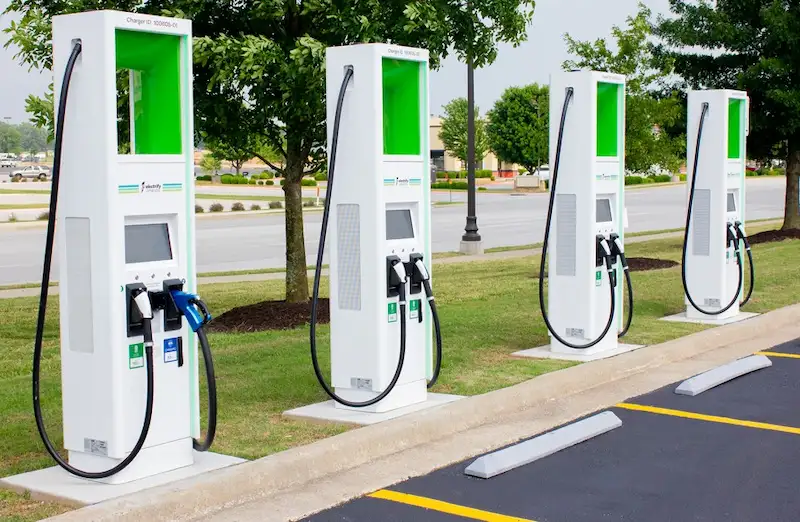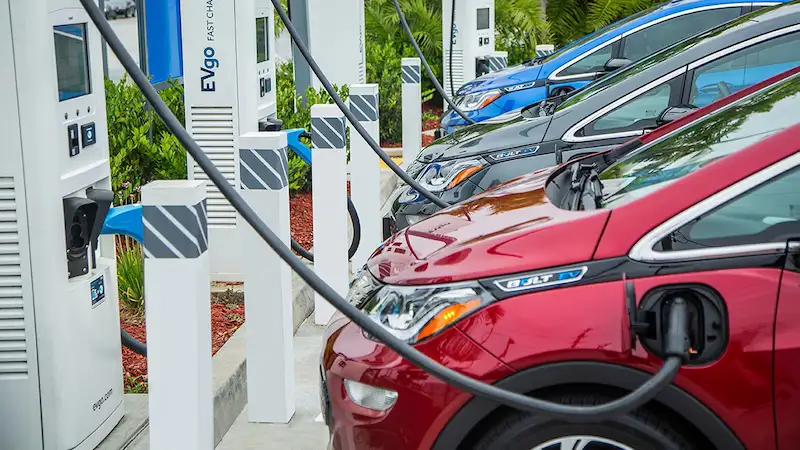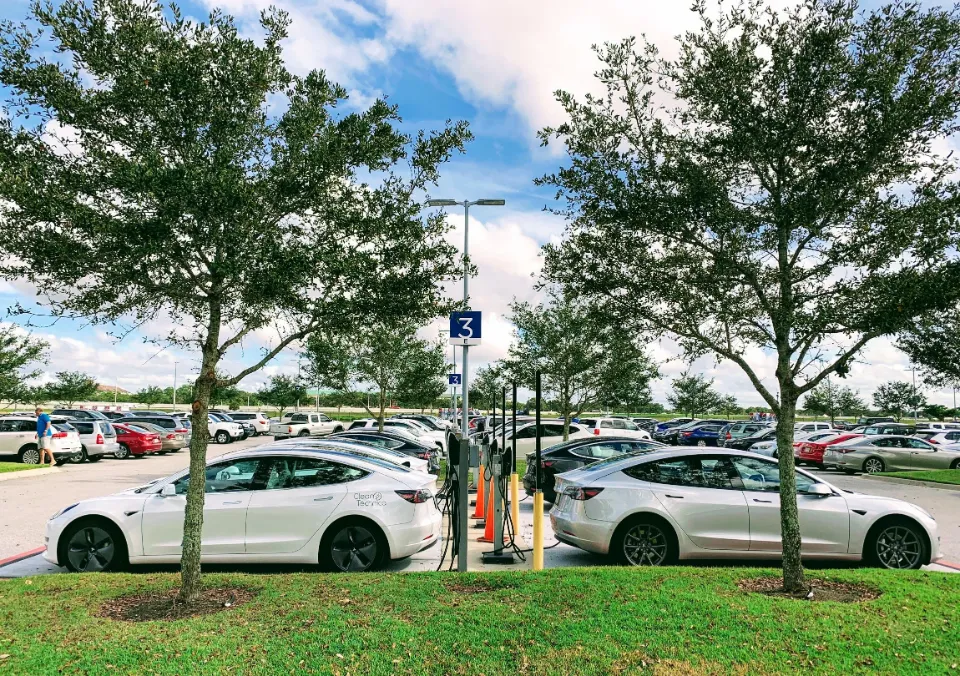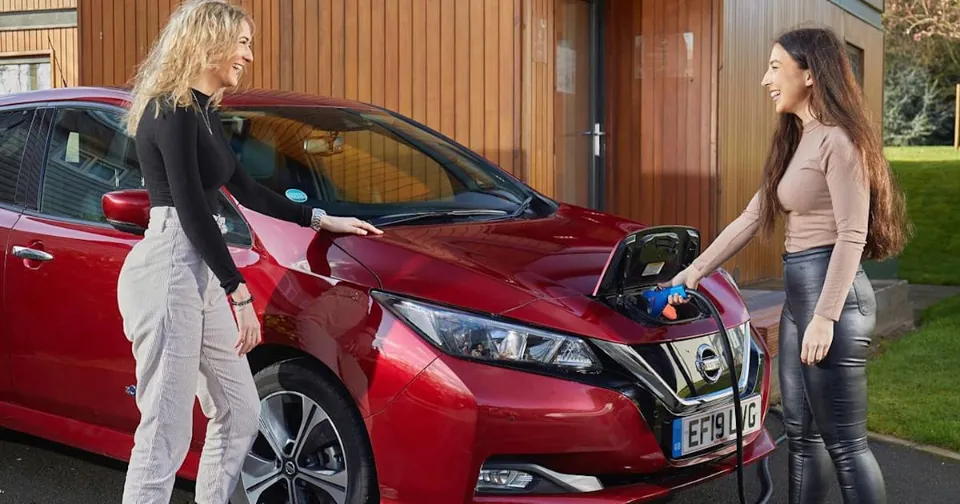To begin with, Who Pays for Electric Car Charging Stations? In most cases, the property owner pays for the electric car charging station. They can reduce some of the costs by looking into utility rebates, tax credits, and incentives, among other innovative options.
Although it’s an expensive project, there are thankfully some options. There are federal incentive programs to help cover infrastructure costs or the cost of the charging station itself. Utility rebates covering up to 100% of the costs are sometimes available.
How Does It work?
Here’s how it works:
- Utility Rebates: Some utility companies offer rebate programs of up to 100%for their commercial customers who install charging stations on their properties. The owners gain because the EV charging stations can draw in more clients and open up a new revenue stream from charging fees.
- Tax Credits and Other Incentives: Due to environmental initiatives, several state and local tax credits and grantsare available to help reduce the costs of building a station.
- Community: If the owners are not eligible for the incentives or rebates, they can look into more original options. They could enter into an arrangement with a neighboring businesswilling to partner and share the costs of installing an electric car charging station.
Following this, it’s common to offer drivers free EV charging or the option to charge the owner of the vehicle using a national charging network like Chargepoint or EVgo.

The Costs of Installing Commercial EV Chargers
A recent report from the renewable-energy-focused nonprofit Rocky Mountain Institute examined the range of costs and found that the final bill will depend greatly on what kind of charging infrastructure you need. Depending on the speed and output power you need, basic level-2 chargers can cost between $2,500 and $4,900 each, while DC fast chargers can cost between $20,000 and $150,000.
Just the chargers are covered by that. You’re looking at electrical transformers ($35,000–$173,000 each), cables ($1,500–$3,500 each), credit card readers ($325–$1,000 each), and data/network contracts that can add a few hundred dollars a year to support electrical needs up front. Installing the chargers themselves may require additional costs after your electrical requirements have been established. It’s clear that the total can add up quickly. However, not everything has to come out of your pocket; in fact, a lot of what does can eventually come back to you.
Long-Term Benefits
Including an EV charging station demonstrates your desire to outperform the competition. It’s crucial to view this as an investment in the expansion and success of your business because it’s a feature that a growing number of employees will demand. Your company’s long-term profits increase as it grows and draws in the best talent. One perk that can ease the transition back to the office after the pandemic and help your company stay competitive by bringing in more interest and foot traffic is EV charging.
Additionally, expanding your business gives you more chances to pass on the expense of the infrastructure for your EV charging stations. Although many employers provide charging to employees free of charge, many also charge a small fee to cover some of the costs associated with providing this benefit. If you’re unsure whether your company can afford these upgrades, it might be worthwhile to ask your employees if they’d be willing to split the costs if they were interested.
Adding network-managed charging stations and smart charging solutions to your property can be a smart move for your company overall, but it’s a big decision with many costs and benefits to weigh. Many businesses that are entering this promising new market have relied on EV Connect as a reliable partner. Every step of the process, from estimating and reducing costs to locating the appropriate charging equipment, is something we are here to assist you with.

What’s Happening?
Power companies across the nation intend to construct sizable EV charging networks throughout their service areas.
- Minnesota-based Xcel Energy, for instance, last week announcedperhaps the boldest such proposal: As part of a larger $300 million EV initiative, it plans to spend $170 million on approximately 750 fast-charging stations in Minnesota and Wisconsin over the next four years.
- The plan, which would ultimately be paid for by Xcel ratepayers, needs to be approved by the public utility commissions of the respective states.
- By providing them with a significant discount on electricity at its charging stations, Xcel claims the plan will persuade more of its customers to purchase EVs.
- However, for everyone else, including those who cannot afford an EV, it simply means having to pay higher electricity bills because many communities only have one utility.
READ ABOUT Are Electric Cars the Future?
What’s Next?
According to Mark Boyadjis, global technology lead at S&P Global Mobility, private companies—not regulated utilities—will eventually own and run the majority of the EV charging network because they are adept at competing on factors like price, service, and amenities.
- Electricity customers will pay, but for the time being, utilities might have an advantage.





